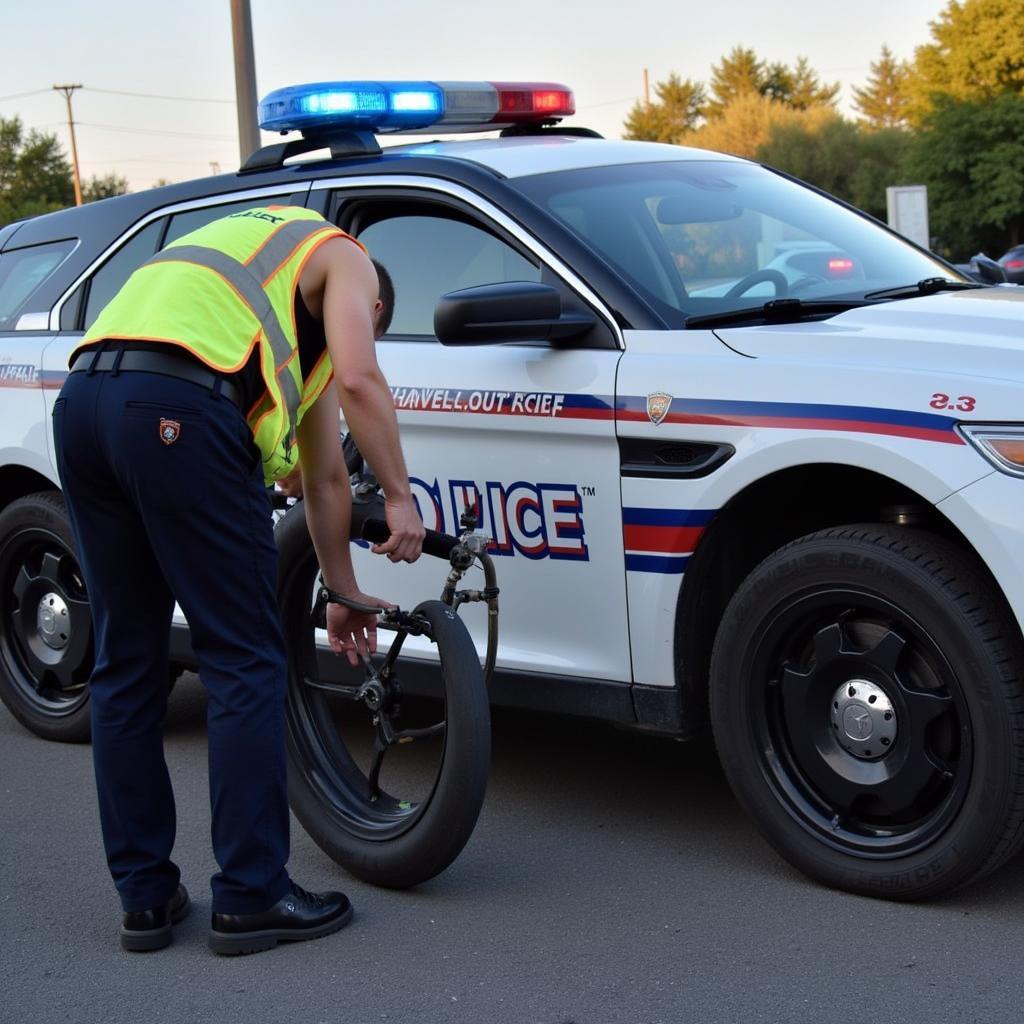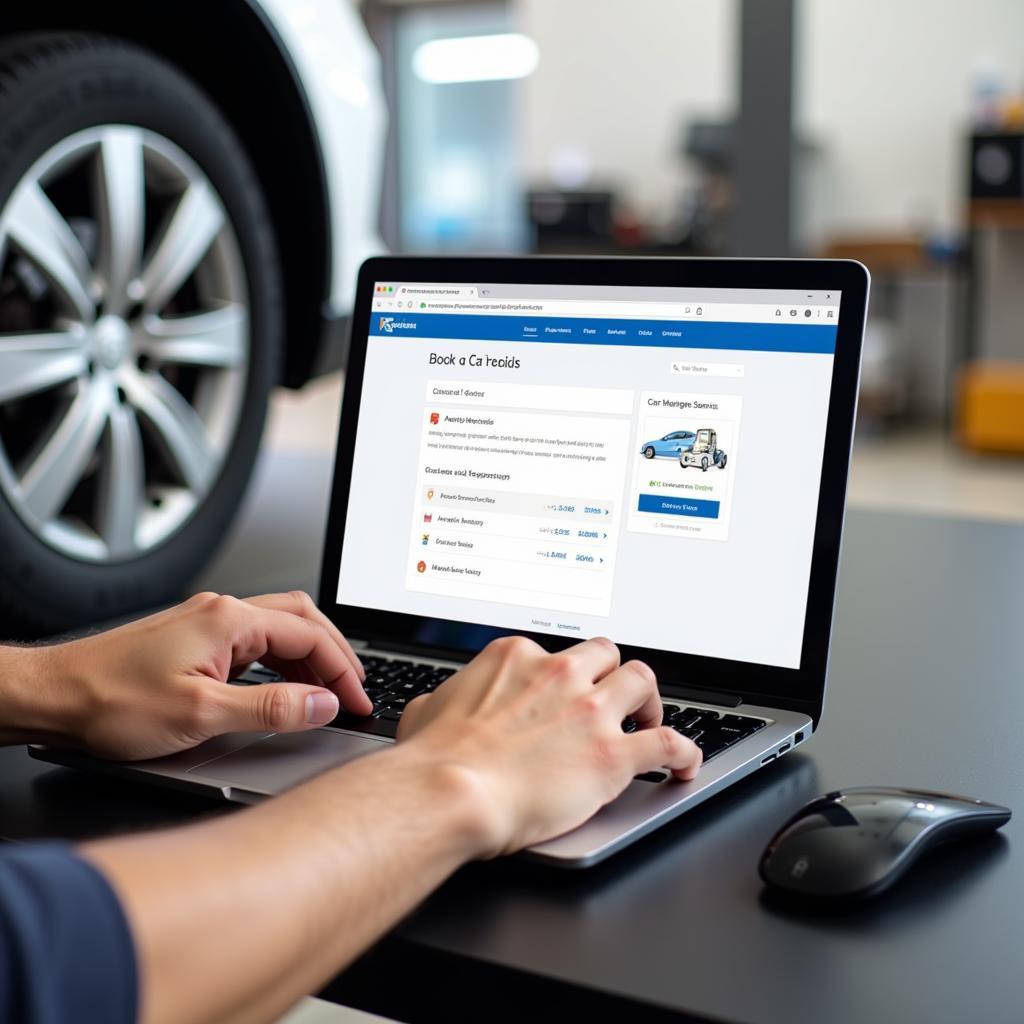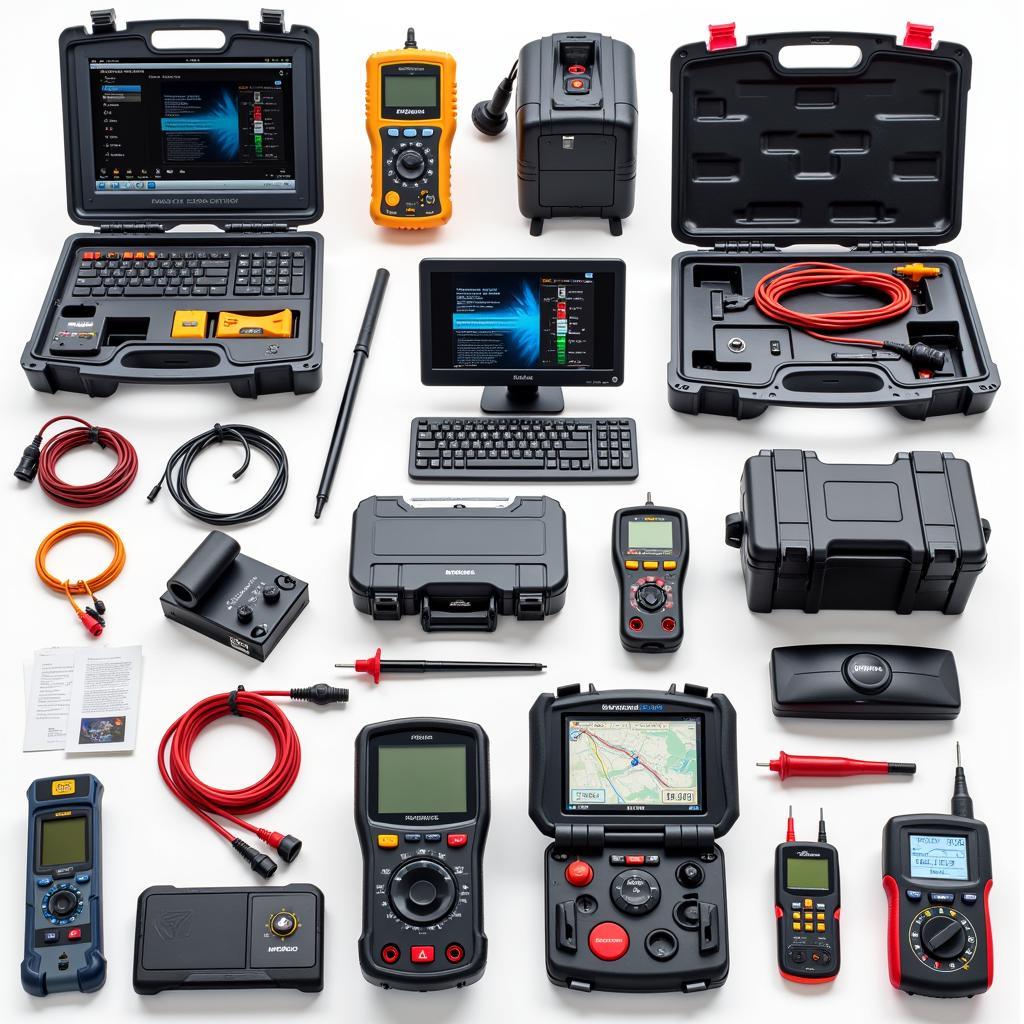Where Do Police Cars Get Serviced?
Maintaining a fleet of police vehicles in top condition is crucial for public safety. But Where Do Police Cars Get Serviced? The answer isn’t as simple as pulling into your local garage. It involves a complex network of specialized mechanics, in-house garages, and external contractors, all working to ensure these vital vehicles are always ready for action.
Understanding where police vehicles receive maintenance offers a fascinating glimpse into the logistical side of law enforcement. This article dives into the various maintenance procedures, the facilities used, and the specialized expertise required to keep police cars patrolling our streets. We’ll explore the differences between routine maintenance and emergency repairs, and examine the factors influencing where a police car is serviced. who services police cars
How Police Car Servicing Differs From Regular Car Maintenance
While police cars share many similarities with civilian vehicles, their maintenance needs are significantly different. These vehicles are subjected to extreme conditions, from high-speed chases to extended idling periods, requiring more frequent and rigorous servicing. Routine checks go beyond the standard oil change and tire rotation, often including inspections of specialized equipment like lightbars, sirens, and computer systems.
The Importance of Specialized Mechanics
Specialized mechanics play a vital role in maintaining police vehicles. They possess in-depth knowledge of the specific makes and models used by law enforcement, as well as the complex electronic systems integrated into these vehicles. Their expertise is essential for diagnosing and resolving issues that might not be apparent to a general mechanic.
In-House vs. External Servicing: Weighing the Pros and Cons
Many police departments maintain in-house garages staffed with specialized mechanics. This allows for quicker turnaround times for repairs and greater control over maintenance schedules. However, smaller departments or those with limited resources may opt to contract with external garages specializing in fleet vehicle maintenance. This approach can be cost-effective, but it might require more coordination and potentially longer wait times for service.
Do you know your legal obligations regarding car servicing? It’s worth checking out. do you have to have your car serviced by law
Where Do Police Cars Get Serviced: A Closer Look at the Options
There are several options for where police cars get serviced, each with its own advantages and disadvantages:
-
Dedicated Police Garages: These facilities are specifically designed for the maintenance and repair of police vehicles. They are typically equipped with specialized tools and diagnostic equipment and staffed by highly trained mechanics.
-
Fleet Maintenance Shops: Some police departments contract with fleet maintenance shops that specialize in servicing a wide range of vehicles, including police cars. These shops may offer competitive pricing and convenient locations.
-
Dealerships: For specific repairs or warranty work, police cars might be taken to authorized dealerships for the vehicle’s make and model.
-
Mobile Repair Units: In some cases, mobile repair units are dispatched to handle minor repairs or breakdowns on-site, minimizing downtime and keeping officers on patrol.
 Police Car Being Serviced by a Mobile Repair Unit
Police Car Being Serviced by a Mobile Repair Unit
The Role of Technology in Police Car Servicing
Modern police cars are equipped with advanced technology, and servicing these vehicles requires sophisticated diagnostic equipment and software. Mechanics need to be up-to-date on the latest advancements to effectively diagnose and repair complex electronic systems. This ongoing training and investment in technology is crucial for maintaining the reliability and safety of police vehicles. Wondering about the legal implications of skipping car service? Find out more. is it illegal to not service your car
The Future of Police Car Servicing
The future of police car servicing will likely involve increasing reliance on predictive maintenance, utilizing data analysis and sensors to anticipate potential problems before they occur. This proactive approach can minimize downtime, reduce costs, and improve the overall efficiency of police fleet management.
Conclusion
Where police cars get serviced depends on a variety of factors, including the size of the department, budget constraints, and the specific needs of the vehicles. Whether it’s a dedicated police garage, a fleet maintenance shop, or a mobile repair unit, the priority is always to ensure these crucial vehicles are in optimal condition to serve and protect our communities.
FAQs
-
How often are police cars serviced? Police cars undergo more frequent servicing than regular vehicles, often on a strict schedule determined by mileage and usage.
-
Who pays for police car servicing? The cost of police car servicing is typically covered by the department’s budget.
-
What are the most common repairs for police cars? Common repairs include brake replacements, tire changes, and electrical system maintenance.
-
Are there specialized mechanics for police cars? Yes, many mechanics specialize in working on police vehicles and their unique equipment.
-
What type of training do police car mechanics receive? They receive specialized training on the specific makes and models of police vehicles, as well as their complex electronic systems.
Common Scenarios For Asking “Where Do Police Cars Get Serviced”
- Witnessing a police car breakdown: Seeing a disabled police car might prompt the question of where it will be towed and repaired.
- Curiosity about public spending: Taxpayers might be interested in how public funds are used for vehicle maintenance.
- Career interest in automotive mechanics: Someone considering a career in automotive repair might wonder about specializing in police vehicles.
Related Questions and Further Reading
You might also be interested in learning about the different types of police vehicles used or the training required to become a police mechanic.
Need Assistance?
Contact us via WhatsApp: +1(641)206-8880, Email: [email protected]. We have a 24/7 customer support team.

